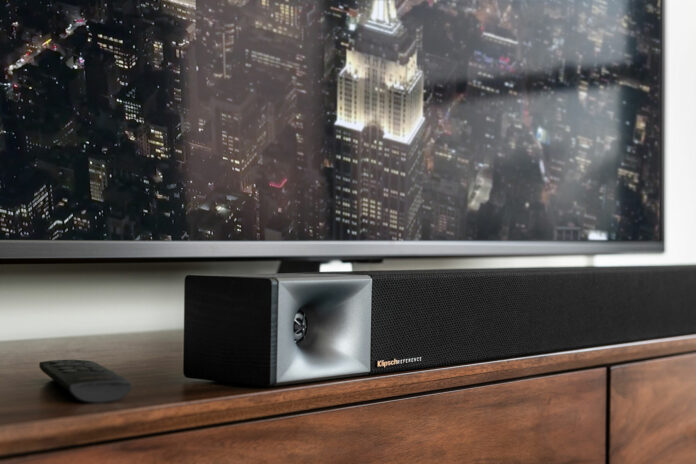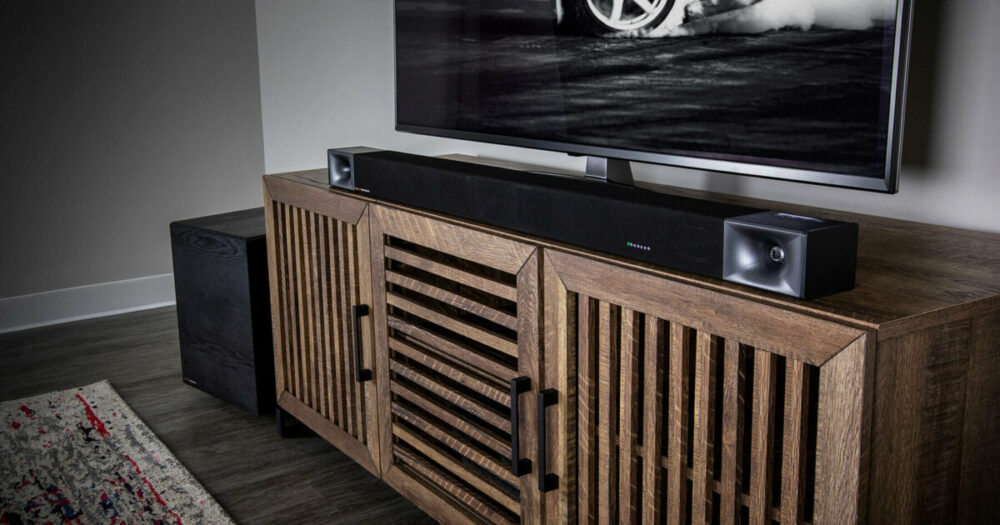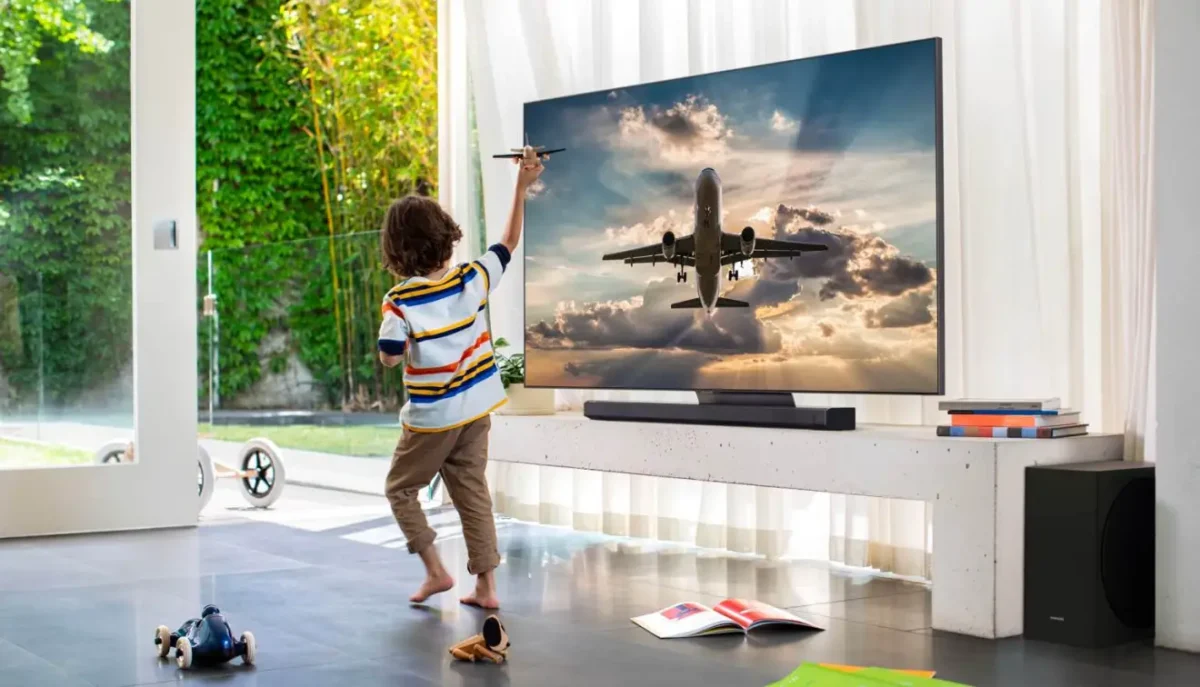
Are you looking for an immersive home theater experience but don’t want to invest in a full surround-sound system? Then you should definitely consider getting a soundbar! From providing crisp highs and deep bass, to creating an all-encompassing soundstage, these devices can take any TV’s entertainment to the next level. Read on to discover all the reasons why every TV needs a good soundbar!
Improved Audio Quality
Having a superior soundbar audio system in your home theater or entertainment setup can significantly improve overall sound quality in comparison to traditional TV speakers. This is especially true if you opt for a model with extra channels, such as 5.1 or 7.1, which are designed to offer comprehensive surround sound experiences. Soundbars like Sonos also make use of advanced technology such as Dolby Atmos, DTS:X, and other surround formats that simulate 3D audio by delivering realistic 3D positional audio effects from height channels in addition to speaker system channels.
Soundbars with multi-channel inputs can also be used to drive additional outboard speakers for those interested in achieving sophisticated home theater systems without the space restrictions (and expense) of traditional speaker systems and multiple amplifiers. For instance, an additional center channel speaker and two or four additional rear surround — plus their necessary amplifiers and cabling — can be bypassed by using one of the many multi-channel soundbar options on the market today that support this type of setup.
More Immersive Experience

When watching movies or television, a soundbar can provide a more immersive experience. A soundbar can produce more sound effects, more background ambiance, and deeper, richer bass than cables usually allow. This will make you feel as though you’re on set with the characters instead of in front of a television. In addition to enhancing the overall viewing experience, many people prefer the fact that soundbars offer multiple speakers ideal for audio surround systems without the need for having individual speakers scattered around the living room. This is also a convenient solution if your home doesn’t have central wiring for more heavy-duty systems.
Quality soundbars come with directional tweeters that are specifically designed to disperse audio in different directions and angles around the room based on appropriate EQ settings specific to your hearing preferences. In other words, personalizing your audio settings is key to enjoying an even more cinematic and immersive viewing experience in any environment or setting of your choosing.
Space-Saving
Adding a soundbar to your TV setup is ideal for anyone who doesn’t have room for multiple speakers. It can provide high-quality audio without taking up much space in your home entertainment center. This is especially true for smaller spaces, such as apartments, dorms, and bedrooms, where floor space may be limited.
They are designed with improved sound quality and precision in mind – they provide immersive sound while saving space since they are all one component that fits nicely below the TV or can be mounted on the wall. In general, soundbars offer an uncluttered option with an open floor plan that allows you to keep the surroundings neat and organized.
Factors to Consider When Buying a Soundbar

When shopping for a soundbar, you should consider several things such as size, sound quality, features, and price. Additionally, you should think about how you plan to use it and what kind of sound you want to achieve. All of these factors will help you choose the right soundbar for your needs.
1. Budget
When searching for the right soundbar, the budget should always be a major consideration. They can cost anywhere from $50 to several thousand dollars, so it’s important to have a good idea of what you’re willing to spend before shopping. There’s no reason to break the bank on something extravagant if you can purchase an affordable model that meets your needs and still sounds great.
However, be aware that there are a variety of factors that can affect the quality and performance of a soundbar. Some of these considerations include the size, features, and type of technology used in the system — all things that tend to cost more as the price increases. Additionally, certain models offer to surround sound technologies while others do not; higher-end options may also come with other bells and whistles such as Bluetooth capability or home theater compatibility.
If possible, try listening to different soundbars prior to making a purchase. This will provide you with invaluable information on what kind of sound quality each model is capable of producing and allow you to make an informed decision about which one best suits your needs within your budget range.
2. Room Size

The bigger the room, the more sound your soundbar system will need to produce to fill it. Smaller rooms should be able to accommodate a narrower, taller soundbar with fewer (or no) external speakers. Conversely, if you have a large room and need immersive audio that fills your entire living space – such as an open plan kitchen/dining area with French doors leading out into the garden – you’ll need to invest in a wider, multi-channel setup with several additional speakers.
3. Connectivity
Whether you are looking for a wired or wireless connection, sound bar connectivity options can vary greatly between models. Make sure that the sound bar’s connections are compatible with your other audio sources. Some popular connection types include Bluetooth® or Wi-Fi®, as well as directly connecting to specified TV models with an HDMI cable.
A variety of digital inputs can also be connected to a modern sound bar—for example, Optical and Coaxial digital input ports used by many cable boxes and satellite receivers—allowing viewers to have an enhanced audio experience without purchasing new hardware. When choosing a sound bar, ensure that you select one with enough slots and types of connections that satisfy your current needs and may be used if you upgrade components in the future.
Conclusion
When it comes to finding the perfect sound for your television, a soundbar is one of the best and most economical options available. Not only do they provide great sound at an affordable price, but they also make setup easier, as most can connect to your TV with just one cable. Moreover, they come with multiple features that enable you to customize your viewing experiences such as expanding sound, different listening modes, and even wireless capabilities. With all these benefits in mind, there is no question that having a good quality soundbar is an essential part of any home theater setup and will improve your overall viewing experience.








